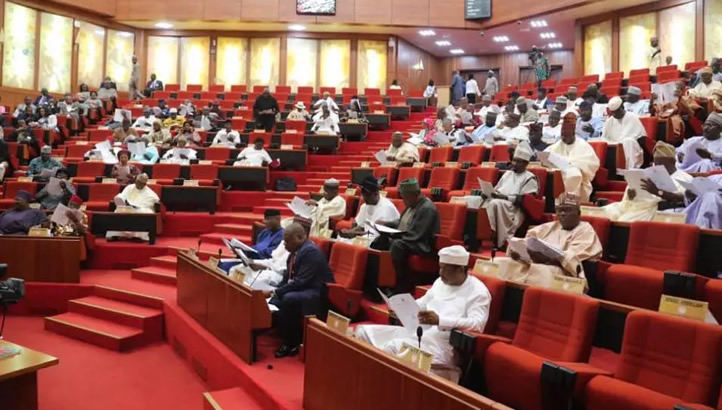The Nigerian Senate has passed for second reading a bill seeking to overhaul the country’s tax laws. President Bola Tinubu had in October 2024 sent the tax reform bill to the Senate for approval.
Few months after taking office, Tinubu had set up a committee on fiscal policy and tax reform. The committee was mandated to examine Nigeria’s tax laws. Also, it was given the task of recommending ways to tackle the menace of tax evasion and increasing the tax to GDP revenue for the country.
After meeting for several months, the committee came up with various recommendations like tax incentives for small scale businesses. In addition, it recommended a tax model through which high income earners will pay more than the low income ones.
The tax reform bill which passed second reading today is also one of the recommendations made by the presidential committee led by Mr Taiwo Oyedele. The bill seeks to harmonise the tax collection system, reduce the burden on small businesses and eliminate the issue of multiple taxation.
- Advertisement -
Also, a section of the bill seeks to amend the model for Value Added Tax revenue distribution in the country. Basically, the section of the bill proposes a derivation model in which each state will get what is commensurate with what is being contributed to the VAT revenue.
The proponents of this proposal argue that this derivation model will bring about a more equitable VAT revenue distribution in the country. However, state governors and some Northern elites have vehemently criticised it saying that the section puts the Northern part of Nigeria at a disadvantage.
Today’s second reading passage will be seen as a huge step given the controversy it generated and the kind of opposition the bill has faced among senior Northern caucus of the Senate.









